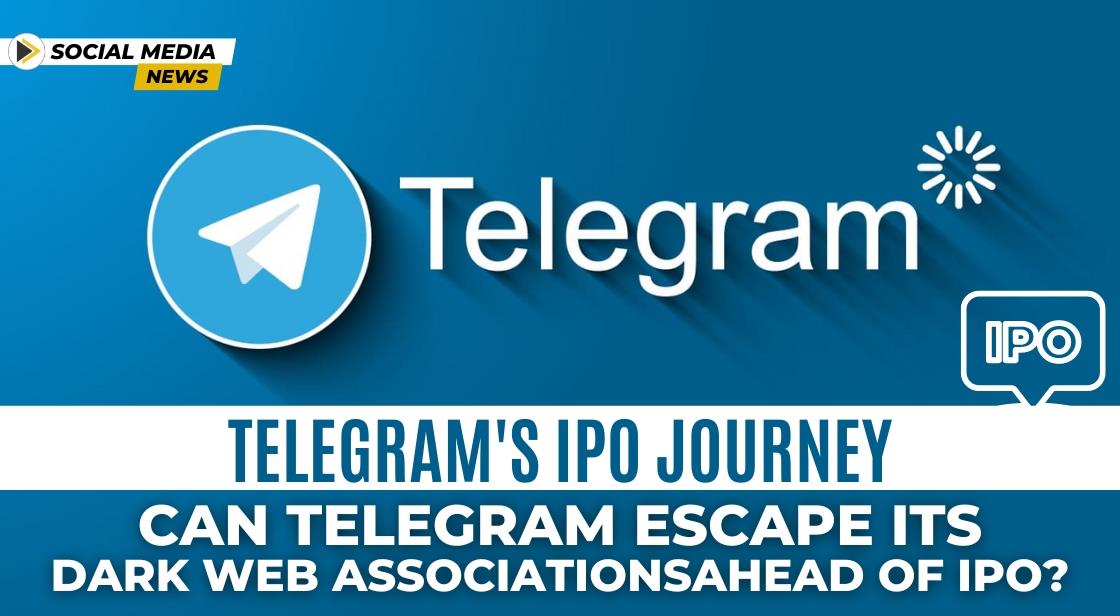Telegram's IPO Journey: Can Telegram Escape its Dark Web Associations Ahead of IPO?

News Synopsis
Cybersecurity and criminology specialists are keeping a careful eye on Telegram, a platform with tens of thousands of groups and channels.
They contend that it has developed into a modern "dark web" where hackers and criminals may carry out illicit operations without being held accountable.
Experts Label Telegram as Platform for Criminal Activity
Cybersecurity experts refer to Telegram as a "social media platform for organized criminals," emphasizing the way it facilitates a range of fraudulent activities directed on US government networks.
These kinds of attacks have become increasingly popular among specific hacker circles.
Telegram's wider significance is shown by its evolution from a messaging app in 2013 to an essential news source and organizational tool amid geopolitical and humanitarian crises, such as the Israel-Hamas conflict and the Russia-Ukraine war.
The CEO of Telegram, Pavel Durov, presents the company as an advocate for free speech and privacy, especially in oppressive countries.
Asia is Telegram's largest market, with 900 million users, and has been growing rapidly since 2021.
Controversy Surrounds Telegram's Role in Global Communication
Telegram has developed into a potent tool for both authoritarian governments and world leaders, thanks to features that resemble Twitter's broadcast capabilities and a lax attitude to content monitoring.
Telegram is a communication medium for a wide range of players, including Hamas and official Russian departments as well as President Volodymyr Zelenskyy of Ukraine.
Some see Telegram as a safe space for protest and free expression, while others worry about the platform's role in spreading false information and supporting illegal conduct.
Concerns about Telegram's accountability and regulation are probably going to get more pressing as its influence grows.
There are still worries over Telegram's connection to illegal behavior and false information, even if it serves as a forum for free expression.
Moreover, Telegram attracts radicals, conspiracy theorists, and dissidents who are looking to avoid the stricter regulations imposed on competitor platforms like Google's YouTube and Meta's Facebook.
Although individuals rely on it for information, experts warn that it is increasingly being used by governments as a weapon for propaganda.
Investors Warned of Risks as Telegram Ventures into Advertising"
Telegram, which is based in Dubai, has escaped the regulatory scrutiny and pressure from law enforcement that have befallen Silicon Valley apps that are comparable.
Dubai, according to its CEO Pavel Durov, is a "neutral" location where the government does not impede its business activities.
Telegram is under increasing pressure to address concerns about its role in supporting illicit activity and upholding integrity, though, as it expands and looks for new ways to monetize, notably through advertising.
Investors need to be cautious about these problems, according to Jeff Allen, co-founder and chief research officer of the Integrity Institute.
Telegram is under increasing pressure to live up to fundamental norms of safety, honesty, and trust—all of which it now does not—as international regulators turn a critical eye toward the platform.
Telegram Faces Criticism Over Illicit Activities and Moderation Concerns
Telegram's function as a global facilitator of several illicit operations, including sales of weapons, fraud, and conversations between alleged pedophiles.
Even with Durov's assertions of active moderating, advertisers continue to have doubts about Telegram's profitability because of its link to harmful material, which might limit their capacity to make money.
Concerns about Telegram's vulnerability to disinformation and propaganda surface as it develops as a medium for communications during combat.
Critics point out that Telegram may be used for coercion and manipulation, despite Durov's claims of active moderation.
This highlights the difficulty in striking a balance between platform integrity and free expression.
You May Like









